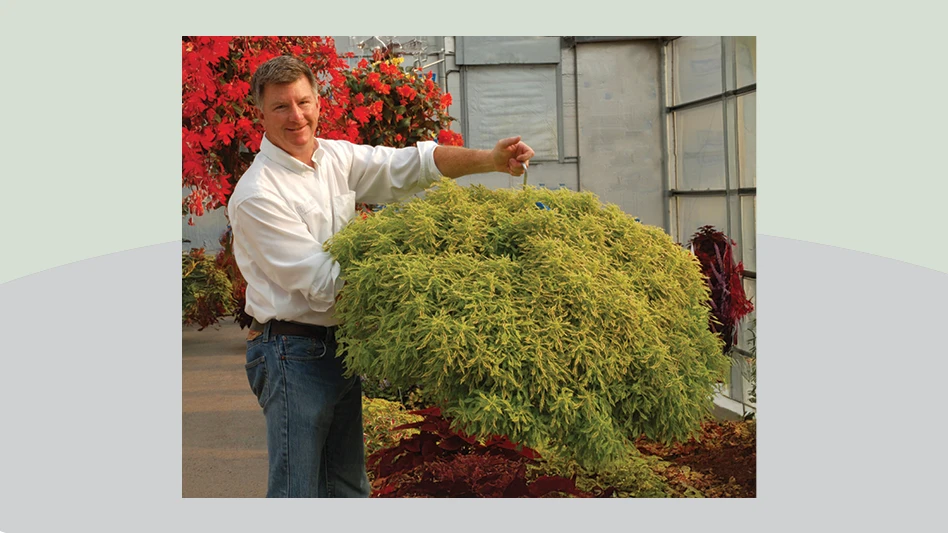
The best-designed systems are no match for mismanagement. When people get involved with systems, suddenly all the parts shown on blueprints and described in standard operating procedures (SOPs) start moving, and someone needs to keep them all under control. That task falls to the operations management team.
Operations management is chasing down a missing shipment of something needed yesterday, dealing with facility issues, training a new hire, talking to a regulator who dropped in and scheduling an employee to sub during another’s vacation. The complexity of operations management increases as the number of operations managers/team members decreases. This suggests lone rangers might have an infinitely complex task, one that may only be manageable in smaller operations or with significant automation. Aside from cultivation, elements such as regulatory compliance, for example, can easily consume a full-time employee’s time as the operation size grows. Expect operations management to be a department, not a person.
People
A reliable and steady workforce is a blessing all operations would love to have, but we must be realistic in recognizing that cultivation jobs in the industry are subject to high turnover typical of entry-level positions. Reliability comes from appropriate training, supportive management and further opportunity. SOPs provide the bulk of information that staff need to learn their jobs quickly and perform them reliably, and management makes sure the education is working. Operators can’t do anything about market forces, but they can recognize and incentivize the best of their staff to stay and contribute, helping provide a stable knowledge and skill base within the operation.
Personal issues are the same in this industry as any other: Some issues aren’t harmful or even noticed, while some are annoying and detrimental to the operation. Company policies and strong people skills within the management team can make the difference between an operation in turmoil and one that hums along.
Communication
In dealing with people, we are reminded that the best plans can often go awry. Ample examples exist of how poor communication has changed the course of history. Our inability to use our sophisticated communication skills to relay information effectively remains a curse and a mystery. Needless to say, over-communication is better than under-communication. Day-to-day exchanges keep the wheels turning, but when there is a flub, good communication can mitigate its impact.
For example: A new growing medium has been approved, and the purchasing department was asked to stop placing orders of the old medium and start purchasing the new medium, but an interruption prevented purchasing from hearing the request. When the account showed no media inventory listed, rapid communication of that fact allowed expedited handling of a small emergency order to enable production to continue.
The direction to execute a task is a command that may be verbal or written, and usually comes with some prioritization. When spoken, commands will occasionally be misunderstood in the heat of battle, and senders of verbal commands need to ensure the receivers understand what they are being asked to do. Even then, verbal commands should be followed up to ensure action. Leave nothing to chance.
Alternatively, written commands, like “Chad and Sam are harvesting Flower 1 today,” are difficult to mess up. Write things down.
Management toolkit
Even the best managers need tools to help them keep up with things, and assess and report how the operation is performing. Here are several useful tools:
Standard operating procedures: These take a load off management. They contain the blueprint of the operation, document all procedures, and make clear standards of performance and data-gathering instructions.
In a nutrient SOP, process designers specified that media pH be held between certain levels. They specified instructions for use, as well as meters to use to measure the pH in the media. They provided a chart on which to record each week’s data. They provided training on how to read the charts, a file cabinet drawer to archive the charts, and a stated policy that this data was to be kept for one year and then destroyed. To educate and retrain staff, clear and concise documentation helps bring workers up to speed quickly and avoids extensive management hand-holding.
Instrumentation: Data’s importance cannot be overstated. Business runs on data. W. Edwards Deming, the architect of modern manufacturing practice and quality control, famously noted that without data, you are just another person with an opinion. Whether you’re evaluating minutes to complete a task, gallons of gas to cut the landscape or the cost of materials, information allows the operation to be understood — and with understanding comes the ability to manage.
When administering nutrients and pesticides, for example, logging the details of what was applied when and by whom provides managers with critical information to know exactly what the plants are being given and see links between applications and plant response. The same goes for light in greenhouses. These structures don’t receive the same light every day, so measurement and documentation of the natural light received inside provides insight into the likely yields that light can deliver along with insight into how much supplemental light might be cost effective.
People: Aside from performance data, the daily huddle, weekly status-reporting sessions and even the weekly ops luncheon provide human input. We all hate meetings, but they are valuable forms of intelligence gathering.
Instrumentation data needs to be handled appropriately. Some data, such as high CO2 levels, are so important that they trigger an immediate alarm. Other data is used every day, like checking whether the cleanup checklist has been completed — while some data is used only occasionally, like pesticide logs. Regardless of usage frequency, all data is important as it is management’s eyes and ears on the operation.
Decision making
The story data tells management is the basis for making decisions about whether the operation is performing properly. Plants growing to schedule, pests under control and a smooth-running staff all feed a “green light” status, indicating everything is within specified parameters. Mite outbreaks, stunted growth or other maladies indicate “yellow light” status, suggesting added focus and monitoring. The realization that no one ordered the new growing media is a big “red light,” indicating potential imminent financial impact requiring immediate action.
A big part of what goes into the status report is consideration of the threat an event poses. The threat of a mite explosion would be considered high if populations exceed the operational control capability of a pesticide, but low if only a few mites are present. This is why performance metrics are an important part of SOPs. They provide the unvarnished and objective truth about an operation’s efficiency, as well as what corrective action might be taken if processes aren’t being followed properly.
Who fits the bill?
So where does one find superheroes who can do all the above, let alone all by their lonesomes? We are happy to say there are many more people around with management skills than with growing skills. And once growing skills are written down, management skills are what keep investors and regulators happy.
General contractor-like skills, restaurant management, crew bossing — those industries need the same skills cannabis operations need to keep running. Essentially, this is someone to protect the investment. The ability to follow a plan and solve problems on the fly is more important than whether they know how to mix nutrients. Nutrients can be taught, but the skill to handle that chronic absentee effectively, stay on schedule and deliver consistent results most often has been honed through one of these other high-energy, high-stakes lines of work.
Operations management is a daily grind in almost all manufacturing, but it is also what pays the bills, so build a diligent and demanding management team and pay them well.

Explore the November 2018 Issue
Check out more from this issue and find your next story to read.
Latest from Greenhouse Management
- North Carolina Nursery & Landscape Association announces new executive vice president
- Plant Development Services, Inc. unveils plant varieties debuting in 2025
- Promo kit available to celebrate first National Wave Day on May 3
- Applications now open for American Floral Endowment graduate scholarships
- Endless Summer Hydrangeas celebrates 20 years with community plantings
- Invest in silver
- Garden Center magazine announces dates for 2025 Garden Center Conference & Expo
- USDA launches $2 billion in aid for floriculture growers





